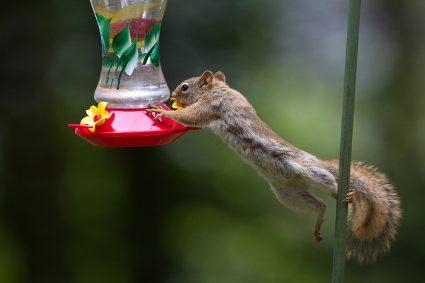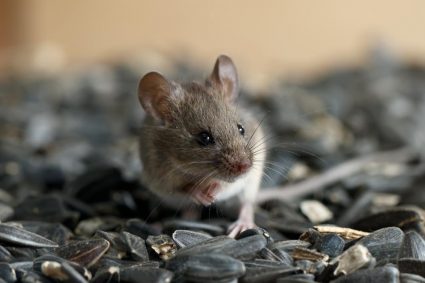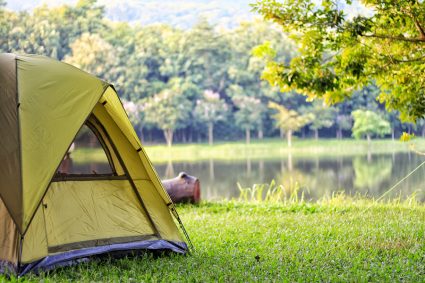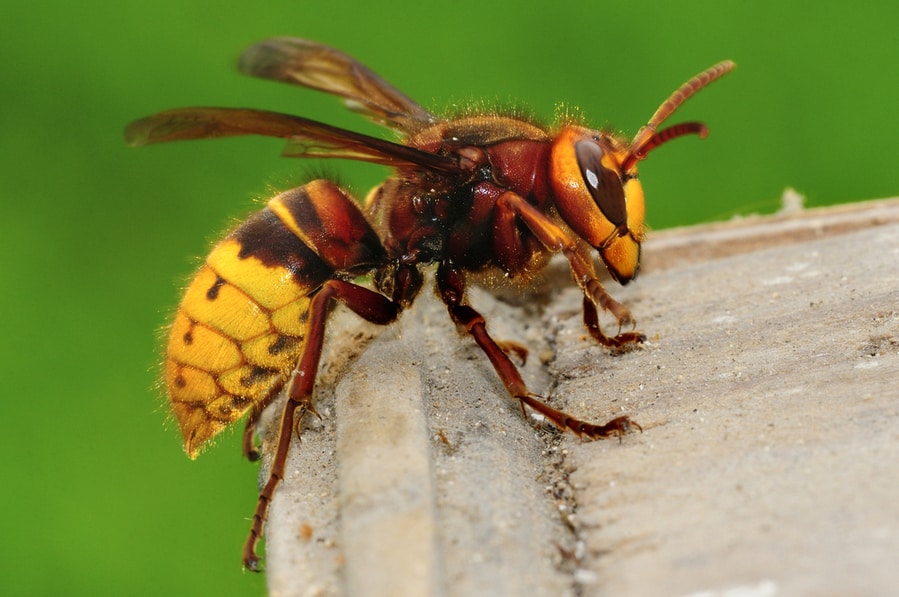
The world is full of stinging insects like bees. And while it’s fun to look at species like bumblebees flying from flower to flower, the buzzing sounds of hornets in your patio are enough to send you and your guests back to your house.
Yes, hornets have always frightened humans since they crossed paths with each other. They have a nasty sting and can spray venom into your eyes to cause temporary blindness.
But even though they may look like they might sting you the moment you step out of your door, they have their role in nature. Hornets are predators and will eat other pests, controlling their population.
However, sometimes they can get out of control and cause problems on your property. So if you don’t know what repels hornets, this article will help.
Hornets are one of nature’s scariest insects. So it’s no surprise that people want to get inside their houses when they visit outdoor gatherings. But they should stop you from having fun.
If you don’t want them to bother you and your guests, below are ways you can repel hornets:
- Soap and Water Spray.
- Essential Oils.
- Hornet-repelling plants.
If you don’t want hornets to come and harass you and your guests, the methods below should repel them.
7 Ways You Can Repel Hornets
Summertime is the perfect season to come out of your house and cook a barbecue with your friends and family. But it’s hard to enjoy the outdoors if you have hornets buzzing around and harassing people.
Fortunately, there are plenty of ways you can repel them away from your yard.
But remember, you are only trying to get rid of hornets safely. If you make them angry, you might call the whole hive to attack you. That said, below are seven ways you can repel hornets.
1. Soap and Water Spray
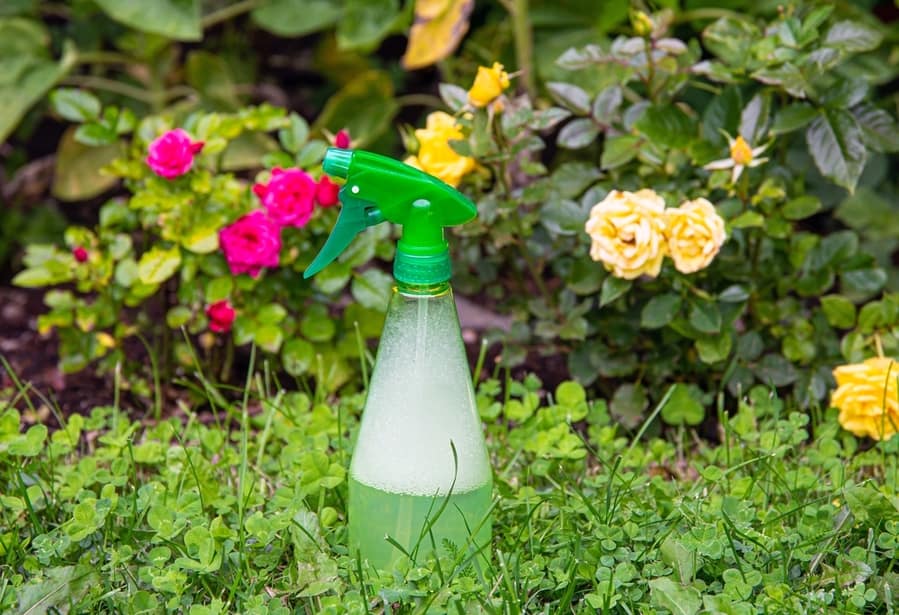
Sometimes people try to look for the most complicated solution to their problem. But that shouldn’t be the case when you repel hornets. And one of the simplest solutions for repelling hornets is soap mixed with water.
There’s nothing easier than adding squirts of dish soap with water in a spray bottle. You just need to shake to mix the solution. And you should be ready to get rid of hornets on your property.
You can keep the bottle near your patio. And when you see a hornet, you can spray at it directly. Soap can clog hornets’ breathing pores and will make breathing difficult. This way, you can kill the hornet without attracting more to your property.
2. Essential Oils
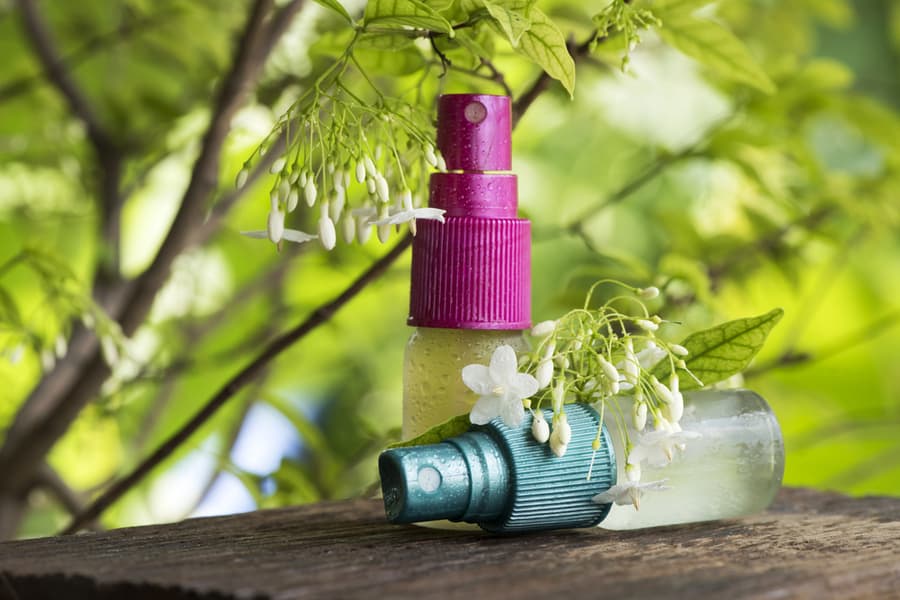
There are various essential oils to repel insects, including hornets. You can easily spray it and watch them fly away. If you are not fond of chemical insecticides, essential oils are the perfect alternative.
An excellent essential oil combination is lemongrass oil, geranium oil, clove oil, and peppermint oil. Mix ten drops of each with water in a spray bottle and shake well. Ensure to label the bottle for safety reasons.
You can deter hornets and keep other stinging insects away by spraying areas where they typically gather, like your garbage cans and picnic table. You can also spray the solution on a nest. But you must follow safety measures.
3. Hornet-Repelling Plants

If you want something more permanent than essential oils, you can plant hornet-repelling plants. Certain plants repel hornets, and you can plant them in your garden to repel them.
Some of these plants are:
- Eucalyptus
- Wormwoods
- Thyme
- Citronella
- Geraniums
You can also put these plants in locations you like to relax, like near your pool or patio. Or near your windows and doorways to prevent honesty from entering your home.
4. Hornet and Wasp Traps
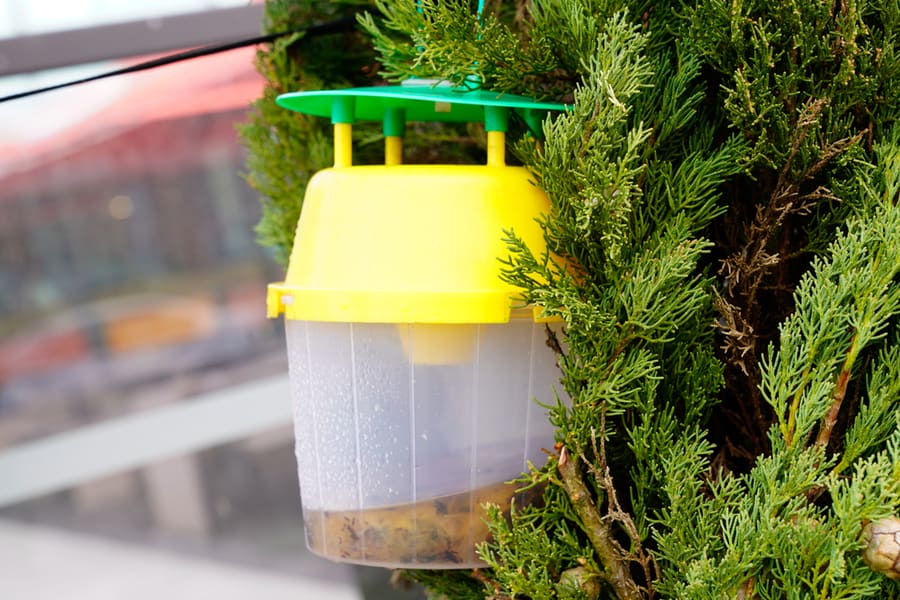
You can draw the attention of wasps away from your gatherings with the help of traps. It will not only get rid of pesky insects but also eliminate them. You have two options when it comes to traps.
First, you can buy one online or at a store. But if you want to save money, you can choose the second option and make one yourself. All you need is a two-liter bottle, duct tape, a sharp knife, juice, a piece of meat, and vinegar.
Hornets search for different types of foods. But what they like the most are protein and sweets. To get rid of aggressive hornets, cut the two-liter bottle in half with a sharp knife, place the piece of meat inside the bottom section of the bottle and pour in some juice, and spray in a small amount of vinegar to repel bees and other unwanted insects.
Remove the cap of the top half and flip it over. Tuck it in the bottom half to make a funnel and place the trap where hornet activity is present.
5. Wasp Decoys
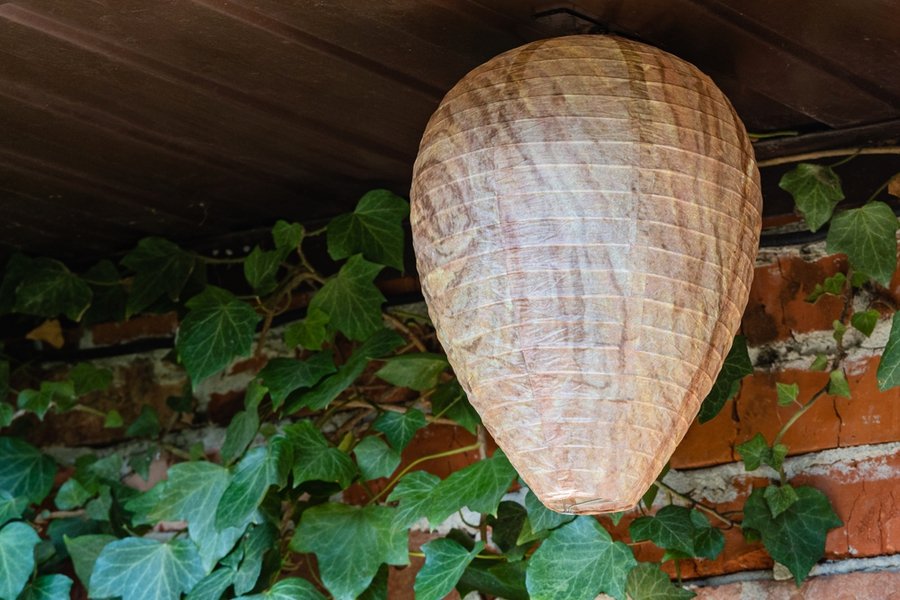
Stinging insects like wasps and hornets are territorial. So if there’s another nest near, they will not hang around for too long in the area. You can take advantage of this and hang wasp decoys or fake nests on your property.
Place one in your garden and some near your patio, deck, pool area, and other places where people gather.
6. Remove Leftover Food and Cover Garbage Cans
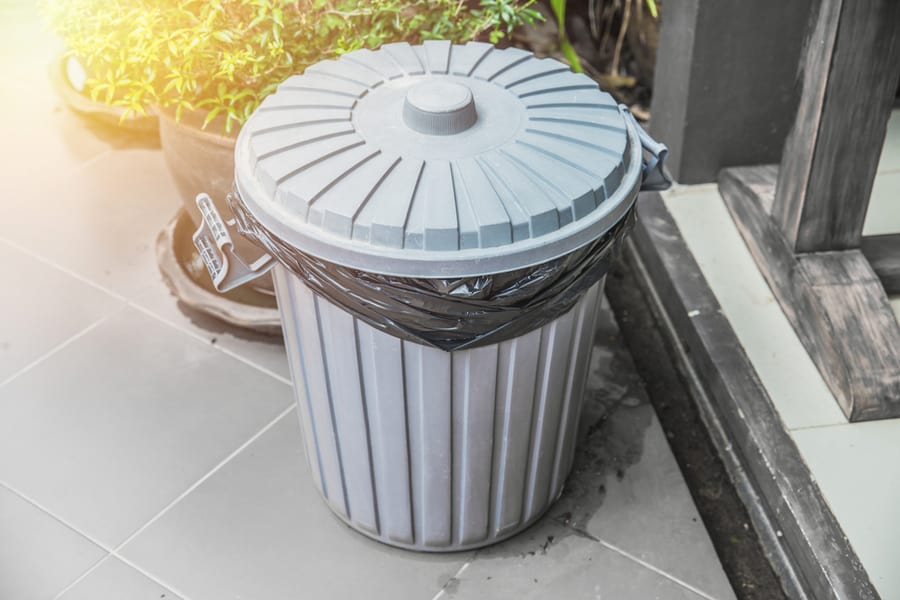
One of the first things you’ll need to do is to eliminate whatever attracts hornets to your property. So remove any leftover food outside your home and tightly wrap food waste within garbage bags. Use heavy-duty bags to act as barriers and avoid spillage.
Pick up fallen fruit from your yard, too. If you have birdfeeders and nectar in your yard, remove them or place them far. It’s hard to repel hornets if you have food exposed in your yard.
7. Maintain Fixtures and Structure at Home
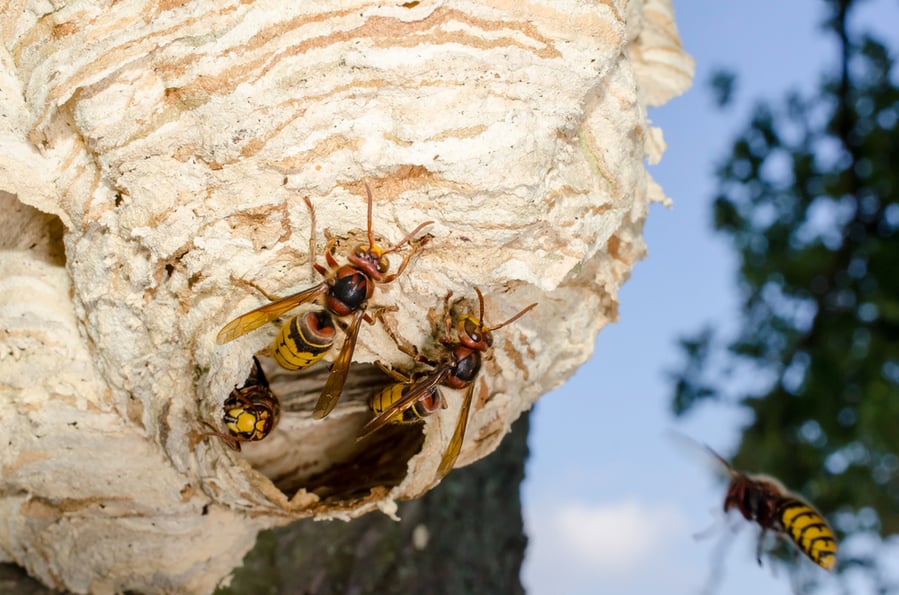
Take a look around your house and expect structures and fixtures. Crevices, broken panels, and gaps in soffits can become dwellings for hornet nests. Ensure insect screens are all in good condition and caulk any holes insects may use to enter your house.
Check for any suspicious holes in your yard. Not all hornets like to make to nest above ground. If you find one, fill it immediately to prevent any insect from turning into a home.
Conclusion
Hornets are some of the stinging insects people avoid. And even though they help the environment by controlling the pest population, nobody wants to get stung by them.
Fortunately, there are safe ways to get rid of them, like soapy water, essential oils, and hornet traps. So, if anyone doesn’t know what repels hornets, sharing this article will help them.
Frequently Asked Questions
Do Hornets Sting?
Unlike honey bees, wasps and hornets can sting you multiple times. So leave the area immediately if you get stung. Hornet venom packs more punch than wasps because it has more acetylcholine.
What Should I Do if I Get Stung by a Hornet?
Use soap and water to wash the sting site and apply hydrocortisone cream. Place a cold compress to reduce the pain and swelling. If you have an allergic reaction, drink antihistamine medicine and seek professional medical help immediately.
What Attracts Hornets?
Just like any other insect and animal, hornets typically search for food and water. If you have food and water lying outside your house, you will surely invite them to your property.



